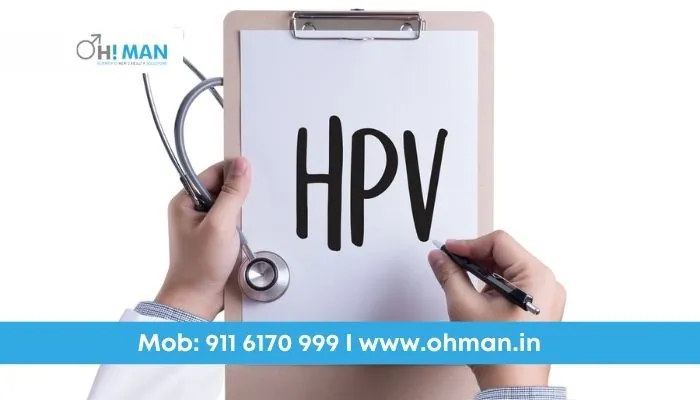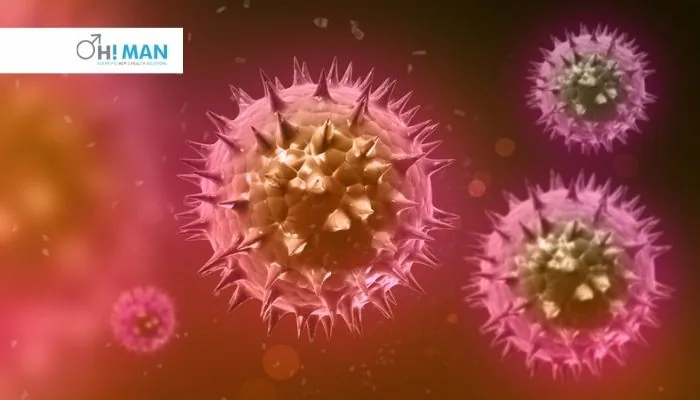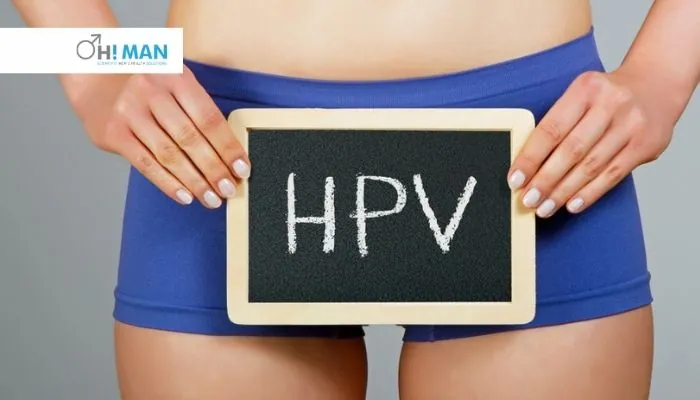Human Papillomavirus(HPV) Causes, Treatment & Prevention
Human Papillomavirus(HPV) Causes, Treatment & Prevention

HPV, or human papillomavirus, is a widely-known virus. There are around 100 kinds of HPV that can affect various areas in the body, and there are about 30 different types of HPV. HPV causes can affect the genitals, such as the vagina, vulva, penis, cervix and scrotum, and the anus and rectum. Around 14 kinds are “high risk, ” leading to cervical cancer.
How Prevalent is HPV?
HPV, which is a genitals-related infection, is extremely frequent. Around 80 percent of sexually active people get HPV early in life. However the majority of individuals are unaware they have the virus.
The truth is that there is no method to treat HPV causes and eliminate the virus from your body.
However, it is possible to make various steps to eliminate warts that HPV causes. It is worth noting the fact that warts generally disappear with no treatment.
Certain varieties of HPV can trigger changes in the cervical cells which results in cervical dysplasia. If the condition doesn’t receive treatment, dysplasia could progress into cervical cancer.
HPV is the most often the source of cervical cancer. But simply because a woman has HPV or cervical dysplasia, it does not mean that she is likely to be diagnosed with cervical cancer.
Other types of cancers like anus, penis-vagina, vulva, and the throat’s back (oropharyngeal) have been associated with HPV infection.
HPV is one of the Sexually transmitted diseases. Which means these infections can be passed on sexually or via any other contact with the skin. Further, vaccines can protect against the effects of HPV more likely to result in genital warts or cervical cancer.
Table of Contents
Symptoms Of HPV
If you suffer from HPV, you won’t notice any symptoms for many years. However, the virus may be present and transfer to your sexual partner.
If you show symptoms, these symptoms can display for weeks, months, and even longer after contracting the infection.
HPV can cause cervical cancer among women. Moreover, the tumor of the cervical lining usually doesn’t show any indications in its initial phases. However, it may cause bleeding during periods or the following sex as it grows.
If you’re suffering from HPV and are at risk, you can decrease the chance of developing cancer by having regular check-ups for cervical cancer and other forms of cancer that result from HPV infection symptoms.
The body’s immune system can defeat an HPV most of the time. however, the HPV causes warts to appear in your body. The appearance of warts can vary according to the type of HPV. So, warts due to HPV infection are:
Genital Warts
These appear as flawless lesions, tiny cauliflower-like bumps, or tiny protrusions that resemble stems. In women, genital warts appear in the vulva. Moreover, it can also appear on the anus region or cervix. Further, HPV in men can cause genital warts on the scrotum, penis, or the area around the anus. Moreover, Genital warts seldom cause pain or discomfort, although they might appear painful.
Common Warts
Common warts are bumps that are raised and rough and appear on hands and fingers. Most of the time, common warts are ugly, but they could be painful and prone to bleeding or injury.
Plantar Warts
Plantar warts are tough, grainy growths that typically appear in the heel or on the balls of your feet. They can cause pain.
Flat Warts
In some cases, HPV causes Flat warts. They seem to be small raised, flat-topped lesions. We can find them everywhere. However, children typically have them on their faces, while men are more likely to have them in the area of their beards. Women usually get them on their legs.

HPV Causes
HPV infection occurs when the virus gets into your body through an abrasion, cut, or small tear within the skin. Skin-to-skin contact spreads the virus.
Genital HPV causes through sexual interaction such as anal sex or contact between skin and area. Certain HPV diseases that lead to upper and oral respiratory lesions can spread via oral sexual contact.
If you’re pregnant and are suffering from HPV Warts that are genital, if your baby is born with genital warts, you could likely contract the infection. Sometimes, the condition can cause a non-cancerous growth in babies’ voice boxes (larynx).
Warts are infectious, and they can spread via direct contact with warts. Warts can also be spread when someone comes in contact with something that has previously has touched an existing wart.
Risk factors
HPV The incidence of infections is frequent. Risk factors for HPV Infections include:
- Number of partners sexually: As many sexual partners as you can have, you will more likely contract a genital HPV infection. If you have a relationship with someone that has been through multiple sexual partners can increase your risk.
- Age: Common warts are more common in youngsters. Genital warts typically occur in young adults and adolescents.
- Weak immune systems: Individuals with weak immune systems are in danger to contract HPV infections. Immune systems may get weak through HIV/AIDS or immunosuppression medications used following organ transplants.
- Skin damaged: Warts are prevalent in areas of the skin that were cut or injured.
- Personal Contact: Not putting on protective clothes before coming into contact with HPV-affected surfaces, including such communal showers and swimming pools.
Complications
- Upper and oral lesions. A few HPV Infections cause lesions to the tongue and tonsils, soft palate, or inside your nose and larynx.
- Cancer. Certain varieties of HPV Cervical cancer can be caused by cervical cancer. These strains can cause tumors of the female genitals, oral cavity, and upper respiratory tract.

HPV Treatment
The majority of HPV infections disappear independently and do not require any treatment. However, certain types of HPV may cause cancer, such as cervical cancers, cancers of anal and throat cancer.
The cancer of the cervical lining is by far the most prevalent kind of cancer HPV causes, and this is the simplest type of HPV-related cancer that you can avoid.
Medicines
Treatments for warts and other skin lesions generally include applying medications directly over the area and typically require several applications before they’re effective.
Other surgical procedures for HPV
If the medications aren’t working, your doctor may recommend removing warts using one of the following ways:
- Freezing utilizing the use of liquid nitrogen (cryotherapy)
- A spark of electricity is the cause of the burning (electrocautery)
- Removal surgical
- Laser surgery
Prevention Of HPV
Warts are often gone without treatment and are most common in children. Further, there is no cure for the disease, which means they could reappear in the same location or elsewhere.
An HPV vaccine can prevent cervical cancer. It is recommended for girls and young women who are 11 or 12. The HPV vaccine is also available for girls and young women between the ages of 13 to 26 who haven’t received the vaccine.
This HPV vaccination is also for bisexual and gay males (or anyone who has sexual relations with a male) and for those who have weak immune systems, such as HIV, between the ages of 11, 12, or 13.
Also, both men and women aged 27 to 45 who have risk characteristics for developing HPV-related cancers should get vaccines.
Some other prevention tips include:
- Condoms should be used every whenever you have sex to protect yourself against HPV.
- Reduce the amount of sex partners you have. The HPV threat is high in case of multiple sex partners.
- Get regular Pap tests. Pap tests can find cell changes on the cervix, which may be early signs of cancer.
Bottom Line
The infection will clear for most of those with HPV within two years.
Through regular screening for cervical cancer, medical professionals are more likely to detect any abnormalities due to HPV causes in the cells before they develop into cancer.
If a physician detects any abnormalities, treatment may be initiated early, which helps improve the chances of success.
In case you aren’t sure whether you are experiencing HPV or any STD, you can openly and comfortably discuss your current condition with the Ohman specialists. We have doctors with extensive experience treating men’s sexual concerns like premature ejaculation and erectile dysfunction, and you are just a step away from your consultation.
So, book an online consultation with Ohman, and our doctors will address your health issues.
Frequently Asked Questions About HPV
- Can you get HPV non-sexually?
Ans – The transmission of HPV that is a sexually transmitted is caused when infected skin come in direct contact with damaged skin. However, it can also be transmitted during any kind of skin to skin contact like fingers and mouth. - Is it possible to get rid of HPV once you’ve contracted it?
Ans – The virus may remain within your body for a long time. Furthermore, your body has the ability to produce antibodies to destroy the virus and remove it in between one two years. However, the majority of HPV causes go away permanently with no treatment. - What are the warning signs of HPV?
Ans- The majority of forms of HPV are asymptomatic, and this means that you won’t experience any obvious signs or signs. So, if you experience symptoms, they are in the form of genital warts and cervical dysplasia. - Can a man give a woman HPV?
Ans- Yes, human papillomavirus (HPV) is passed alternatively from a woman to a man and man to woman. HPV is a threat to anyone sexually intimate with an infected individual.
Reference – https://www.cdc.gov/cancer/hpv/statistics/



